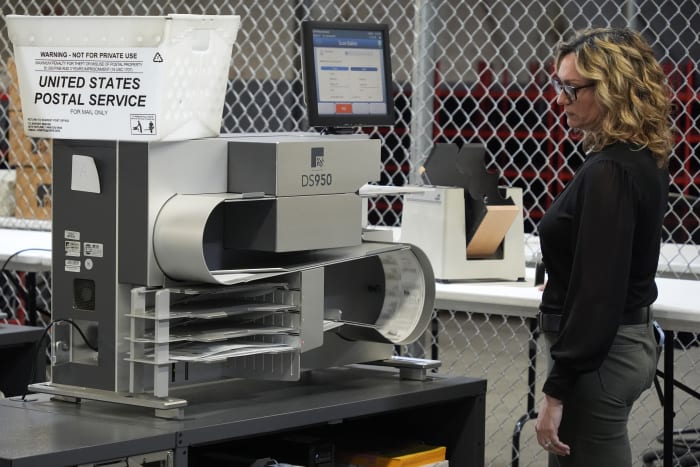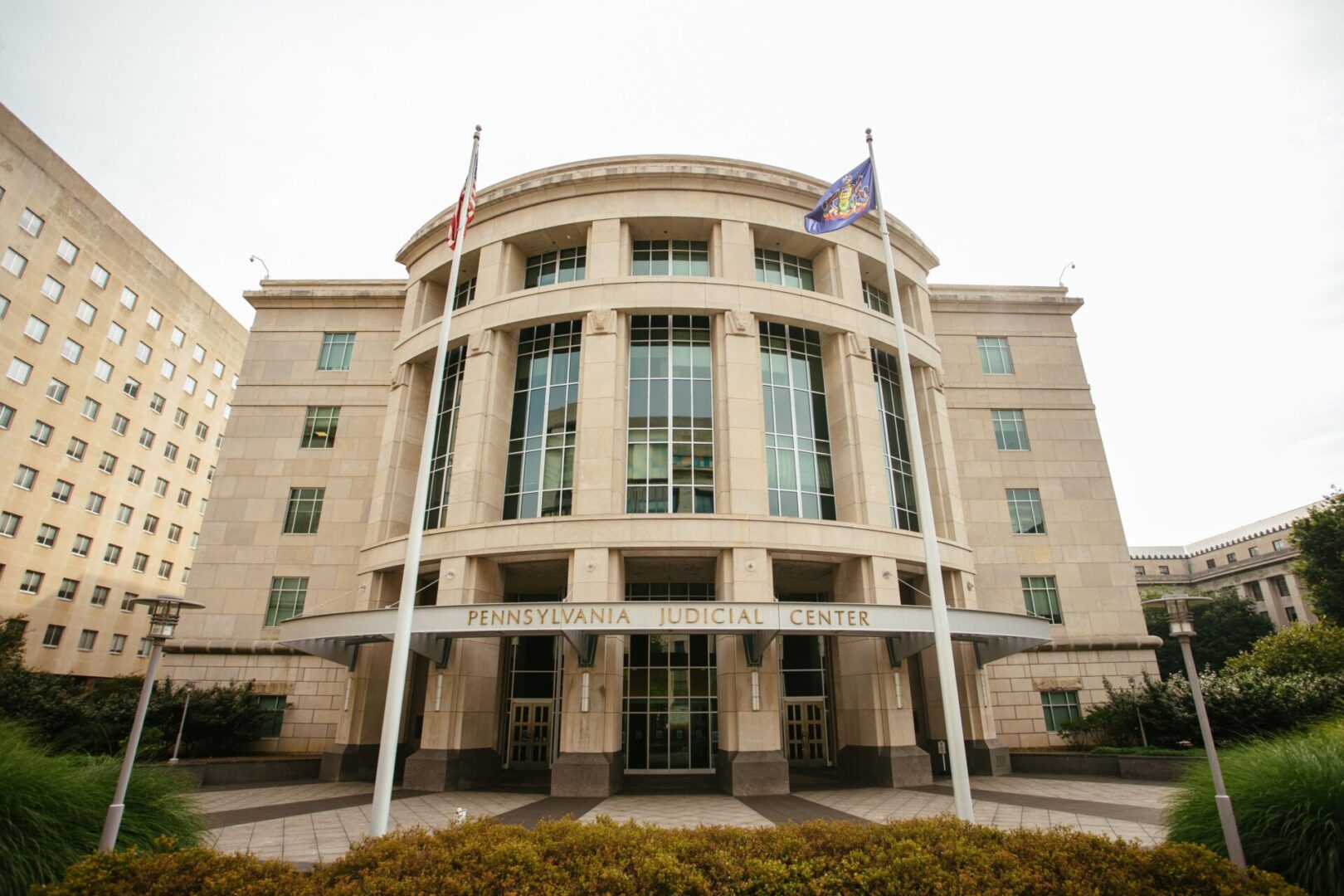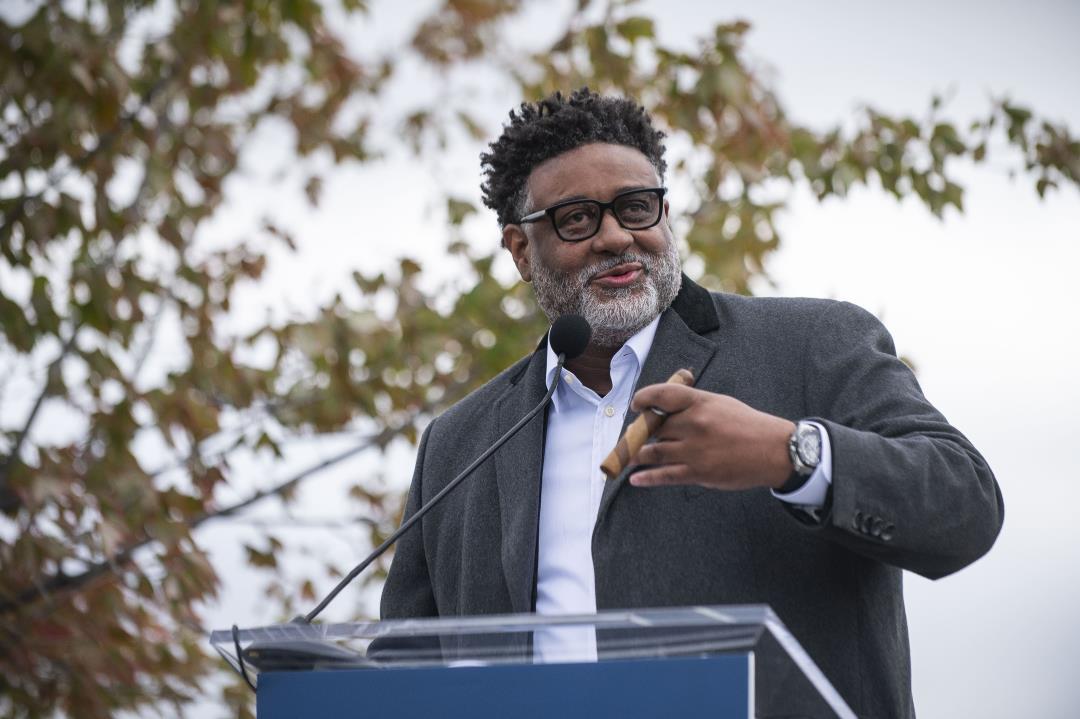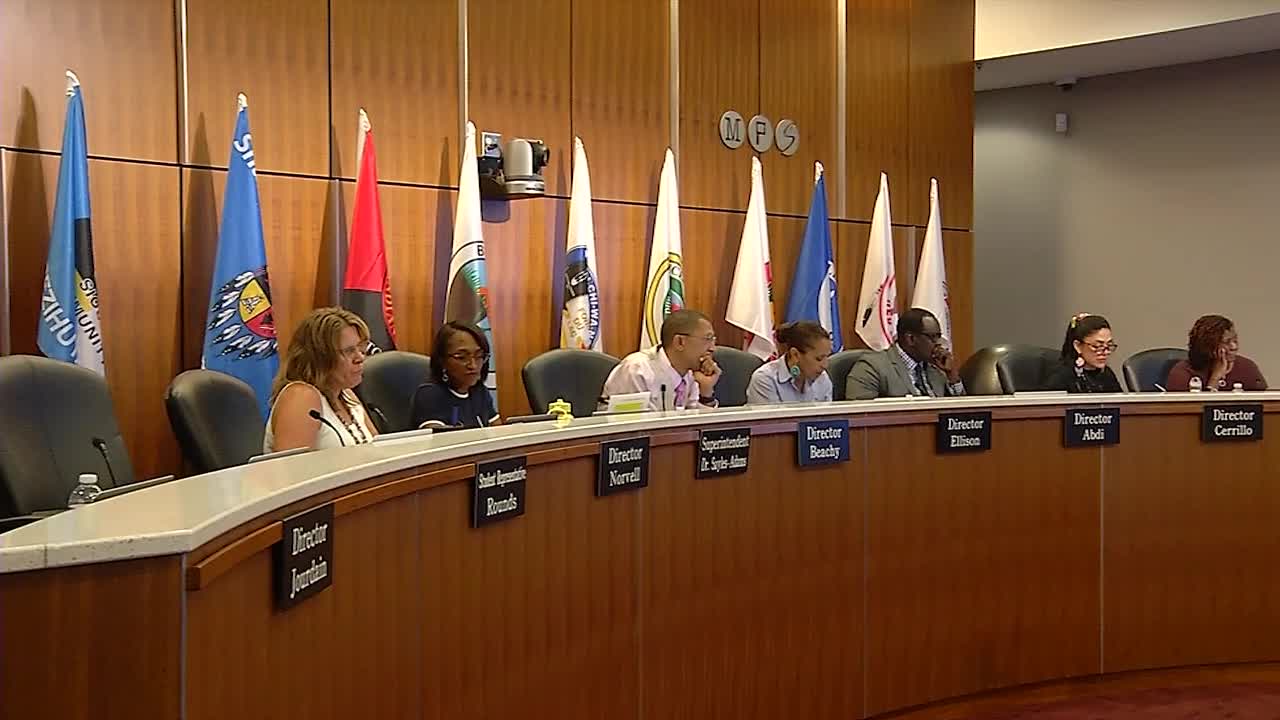Pennsylvania
Pennsylvania College of Technology’s Baja SAE team excels at first ‘home’ competition

Pennsylvania College of Technology students reaped the benefits of their hands-on education and tireless dedication by finishing fourth out of 89 cars in the Baja SAE Williamsport endurance race, the international competition’s premier event.
The 13-member Penn College Baja team devoted several months and countless hours to designing, manufacturing and building a single-seat, all-terrain vehicle to survive various challenges, including the four-hour endurance event, a race featuring rugged terrain, obstacles, sharp turns, hills and lots of mud.
The fourth-place showing is the college’s 15th top-10 finish in the endurance race since 2011.
“I am very proud of the team and their performance,” said John G. Upcraft, instructor of manufacturing and machining and faculty adviser to Penn College’s Baja SAE club since its inception 19 years ago. “It’s difficult to put into words how hard they’ve worked to produce a car that proved to be one of the best in the competition. I truly believe the hands-on nature of our educational approach at Penn College allows our students to meet the high standard to be successful at Baja competitions.”
The students made about 95% of the car’s parts and components using the industry-standard resources of the Larry A. Ward Machining Technologies Center and the Gene Haas Center for Innovative Manufacturing.
“They devoted nights, weekends and school breaks to work on the car,” Upcraft said. “They sacrificed a great deal of personal time to make their car a reality. Their effort is very commendable.”
Penn College’s effort at Baja SAE Williamsport included two other top-10 finishes: fourth in suspension and traction and eighth in maneuverability. Overall, the team placed 10th out of the 102 teams competing. Those teams consisted of about 1,800 students representing colleges and universities from throughout the United States, Canada and Brazil.
“The team pulled it off. It’s not just one person. It takes an entire team to put this car together,” said Penn College captain Marshall W. Fowler, of Sellersville. “I’m super proud of how everybody worked to get us to this point, and I think it paid off.”
Despite starting 22nd in the endurance event, Penn College methodically maneuvered to be among the leaders about 90 minutes into the race. The driving duties were split between Fowler and Isaac H. Thollot, of Milford. Both Fowler (engineering design technology) and Thollot (manufacturing engineering technology) graduated earlier in May. Students are eligible to participate in Baja SAE for several months post-graduation.
“The design team knocked it out of the park with the endurance course. The obstacles were awesome. They were challenging,” Fowler said. “The mud pits in the lower section were causing everybody to get stuck. It was also a fast track, so everybody got to really test the full capability of their vehicles.”
Despite the track being built at Penn College’s Heavy Construction Equipment Operations Site in Brady Township, the “home” team couldn’t see the track until all participants converged at the location for Baja SAE Williamsport.
“Our students were dying to see the layout,” remarked Bradley M. Webb, dean of engineering technologies and one of the chief organizers of the competition. “I think it drove them crazy that it was only about 20 minutes from campus, yet they weren’t permitted at the site. Once they got on the track, we obviously were quite proud of their effort. The team’s performance is a testament to the quality of students we have at this college.”
Penn College’s performance in the endurance event reflected the car’s craftsmanship and durability. Fowler and Thollot combined to complete 51 laps in the race won by Virginia Tech. For perspective, 46 teams recorded fewer than 20 laps, and 24 teams didn’t manage 10 times around the treacherous track.
Penn College had its best lap time (3:44.813) on lap 48. Only one other team recorded its fastest lap that late in the race.
The fourth-place finish by Penn College bested the likes of Ohio State, Michigan, Michigan State, Purdue, Iowa, Maryland, UCLA, UNLV, Oklahoma, RIT, Cornell, Alabama, Texas A&M, Tennessee, Clemson and Georgia Tech.
“The team learned from last fall when they finished ninth in endurance at Baja SAE Ohio,” Upcraft said. “They knew the car needed adjustments. They made the necessary changes, and now they can enjoy the rewards from that effort.”
Changes included a larger chassis to accommodate the car’s four-wheel-drive system, as well as a new front suspension and continuously variable transmission. The team also dropped the weight of the car from 394 pounds to 375 pounds and shifted the weight distribution from 51% bias in the front to 49%.
“We transferred the weight back to the rear and lightened up the front so the car wouldn’t nosedive when going off jumps,” Fowler explained.
About 30 minutes after the endurance race and with the car still caked in mud, the Penn College team had already turned its attention to the next competition, Baja SAE Michigan, scheduled for Sept. 11-14.
“We have a working car now,” Fowler said. “Hopefully over the summer, we can test a bunch of things and tune everything we want and come back strong for Michigan!”
“I wouldn’t be one bit surprised to see the team do even better at Michigan,” Webb added. “They are a talented and determined bunch.”
In addition to Fowler and Thollot, other Penn College team members for Baja SAE Williamsport were manufacturing engineering technology students Nick J. Benninger, of Bloomsburg; Trevor J. Lindsay, of Mechanicsburg; Alec D. Rees, of Centerport, New York; and Brian P. Rogers, of Kunkletown. Engineering design technology majors were T.J. J. Bodei Jr., of Toms River, New Jersey; Casey B. Campbell, of Kennerdell; and Johnmichael S. Weaver, of Greenville. The team also included Leo W. Cooke, of Easton (automated manufacturing technology); Matthew J. Rotundo, of Abingdon, Maryland (applied management); Davis I. Rowell, of Boalsburg (heavy construction equipment technology: technician emphasis); and Jack J. Stump, of York, who graduated earlier this month with an associate degree in machine tool technology.

Pennsylvania
Karen L. Esposito, Farrell, PA

FARRELL, Pennsylvania (MyValleyTributes) – Karen L. Esposito, of Farrell, Pennsylvania, entered eternal rest on Thursday, June 6, 2024, while a patient in the Trumbull Memorial Health Care Center, Warren, Ohio, following an extended illness. She was 68.
Karen was born August 25, 1955, in Sharon, Pennsylvania, a daughter of Albert H. and Thelma I. (Duffy) Christy, Sr.
She was a 1973 graduate from Sharon High School and had worked as a custodian in the area schools. In addition, she helped her husband maintain the Lions Club in Farrell.
In her spare time, she enjoyed drawing and gardening. Moreover, she loved spending time with her sisters.
Survivors include: son, Donald (Becky) Letcher; step-son, Shawn Esposito; six grandchildren; two great-grandchildren; sisters, Linda Bowser, Janet Phillips and Cindy Porterfield; as well as her extended family.
She was preceded in death by her parents; husband, Benjamin “Skate” Esposito, who passed on December 26, 2023; daughter, Jennifer Allshouse; son, Howard Letcher and eight siblings.
In accordance with her wishes, no calling hours or services will be held.
Arrangements have been handled by Briceland Funeral Service.
Expressions of sympathy may be left for her family at www.bricelandfuneralservice.com
Memorial contributions can be made in her honor to the Shenango Valley Animal Shelter, 2599 Broadway Rd., Hermitage, Pennsylvania 16148.
Coordination of this tribute for Ms. Karen was presented by Daniel Briceland, Owner & Director of Briceland Funeral Service, LLC, Brookfield, Ohio 44403. (330-509-3135)
To order memorial trees or send flowers to the family in memory of Karen L. Esposito, please visit our flower store.
A television tribute will air Sunday, June 16 at the following approximate times: 8:58 a.m. on WKBN and 7:58 p.m. on FOX. Video will be posted here the day of airing.
Pennsylvania
Partisan gridlock prevents fixes to Pennsylvania’s voting laws as presidential election looms

HARRISBURG, Pa. – Pennsylvania is seeing lots of action targeting gaps in its vote-by-mail laws. The problem is that it’s in the courtroom and not the legislature.
That could make the most populous presidential swing state a hotbed of challenges and conspiracy theories if the November election is close, as expected.
The state also has a U.S. Senate contest between Democratic incumbent Bob Casey and Republican challenger David McCormick that will help determine control of the chamber, increasing scrutiny on election offices if lawmakers can’t break a partisan stalemate and vote-counting is slowed by mailed ballots.
“Everyone just really feels how high the stakes are in Pennsylvania, being the largest swing state in the country,” said Lauren Cristella, president and CEO of the Committee of Seventy, a Philadelphia-based good-government group.
Political gridlock in Pennsylvania over election laws dates to 2019, when a Republican-controlled legislature greatly expanded voting by mail in a compromise with then-Democratic Gov. Tom Wolf.
Within months, then-President Donald Trump began, without evidence, demonizing voting by mail as rife with fraud, turning Republican voters against it and leading Republican lawmakers to backtrack on their support. He has taken contradictory stances this year — promoting mail voting while also supporting lawsuits against it.
The attacks on mail voting have created partisan battle lines around attempts to fix it in Pennsylvania.
Democrats also want to add early in-person voting, a convenience already adopted by most states, but it’s been a nonstarter for Republicans. Unlike some other states, Pennsylvanian voters can’t change their election laws because the state constitution doesn’t allow citizens to write their own ballot initiatives.
As a result, election-related lawsuits are sprouting in state, federal and county courts, nearly all targeting mail-in voting.
Across the country, Republicans are trying more than ever now to get their voters to vote by mail, a striking change for a party that amplified conspiracy theories about mail ballots in an attempt to explain away Trump’s 2020 loss.
Still, voting by mail remains largely the province of Democrats. In Pennsylvania, roughly three-fourths of mail-in ballots tend to be cast by Democrats.
Among the most important fixes to the state’s mail balloting law is one sought by counties. It would allow local election offices to begin processing mail-in ballots before Election Day, something nearly every other state with mail voting allows. That would help them produce results more quickly on election night.
Democrats also have sought to resolve a storm of litigation by clarifying the law so that mail-in ballots that lack a handwritten date on the outer envelope, a signature or an inner secrecy envelope can still be counted. Thousands of those ballots get thrown out, although Democratic-leaning counties typically try to help voters fix those errors, so their ballots will count.
Without any fixes in state law, Democrats expect a repeat in November of the chaos around the 2020 election.
Pennsylvania’s Democratic Party chair, Sharif Street, said the state is capable of having a fair and well-run election under its existing laws. But, he said, Trump and his allies aren’t interested in that.
“He doesn’t want a smooth process in Pennsylvania or anywhere, because he believes that the chaos benefits him both in the run-up to the election, because he can rally people around saying that ‘There is going to be a steal,’ and then post-election … (he can) point to irregularities to say that he is the rightful winner, when in fact he’s lost,” Street said.
Trump has been sowing doubts about this year’s election for months. At a rally last weekend, he said only widespread fraud could prevent him from getting reelected. “The only way they can beat us is to cheat,” he told supporters in Las Vegas.
Baseless allegations about fraud filled the vacuum during Pennsylvania’s protracted post-election vote count in 2020.
Charlie Gerow, a longtime Republican activist and strategist in Pennsylvania, said the GOP will be prepared to report and document fraud in ways it wasn’t prepared for in that year’s election. To be clear, voter fraud is extremely rare, typically involves just a few ballots and even involves Republican voters — some of whom have cast extra ballots for Trump.
An Associated Press investigation in 2021 found fewer than 475 cases of potential voter fraud across the six states where Trump disputed his loss, not nearly enough to tip the election. In Pennsylvania alone, Biden beat Trump by more than 80,000 votes.
When Democrats brought legislation to a House vote seeking to let counties process mailed ballots before Election Day — called pre-canvassing — a Republican lawmaker warned it “could lead to various forms of abuse and fraud.”
Pennsylvania Secretary of State Al Schmidt, a Republican, said he hasn’t heard of a single state where that sort of fraud has occurred.
The legislation passed the Pennsylvania House, which is narrowly controlled by Democrats, but is stalled in the Senate, where majority Republicans are demanding that the House first pass a constitutional amendment to expand voter identification requirements.
“I am very worried about public perception and public concern that our process is not secure, and we need to figure out opportunities to make that process more secure,” said Senate Majority Leader Joe Pittman, a Republican.
Democratic House Majority Leader Matt Bradford said he also is worried by the legislative stalemate and its potential impact in November.
“We passed pre-canvassing to try to bring some semblance of certainty quickly, to give people a winner as quickly and accurately as possible,” Bradford said. “That has continued to languish.”
Meanwhile, fights over mail voting in the state are piling up in the courts.
One lawsuit by Republican lawmakers would force mail-in ballots to be counted in polling places, rather than county election offices. That would add “immense complexity and burden to election administration,” county governments opposed to the lawsuit said in court documents.
Democrats and left-leaning groups are suing in state and federal courts over the practice of throwing out mail-in ballots with a missing or incorrect handwritten date on the outer envelope.
And at least two Republican-controlled counties are being sued over their refusal to help voters fix technical errors with mail-in ballots — such as a missing date or inner secrecy envelope — to avoid the ballot getting tossed out.
A bright spot is that counties are getting better at counting mail-in ballots.
During the COVID-19 pandemic in 2020, 2.6 million voters — nearly 40% of the total in Pennsylvania — cast ballots by mail. That overwhelmed counties and required almost four days of post-election vote-counting before a presidential winner could be declared, deciding the contest.
Counties since then have bought more high-speed processing equipment and fine-tuned their Election Day routines to count more efficiently.
Allegheny County, which includes Pittsburgh, expects to produce results on election night. In 2020, it needed most of the next day.
Philadelphia expects to wrap up most of its counting this fall within roughly 24 hours after polls close, a task that could be finished by election night if given the ability to process the ballots before Election Day.
“That is a very normal practice that happens all over the country,” said Seth Bluestein, a Republican election commissioner in Philadelphia. “The fact that we can’t do that in Pennsylvania is what will cause us to not count all the ballots on election night. It is the only cause, and the Legislature could have fixed it.”
___
Follow Marc Levy: twitter.com/timelywriter
___
Follow the AP’s coverage of the 2024 election at https://apnews.com/hub/election-2024.
Copyright 2024 The Associated Press. All rights reserved. This material may not be published, broadcast, rewritten or redistributed without permission.
Pennsylvania
Pennsylvania Public Defense System Is Unconstitutional, Underfunded by at Least $100M, New ACLU Suit Says

Spotlight PA is an independent, nonpartisan and nonprofit newsroom producing investigative and public-service journalism that holds power to account and drives positive change in Pennsylvania. Sign up for our free newsletters.
HARRISBURG — Pennsylvania has failed to live up to its constitutional responsibility to provide an effective defense to people who can’t afford attorneys and will need to spend at least $100 million to fulfill this obligation, the ACLU of Pennsylvania said in a lawsuit filed Thursday.
The group brought the suit on behalf of 17 people facing issues including little to no contact with the public defenders they are entitled to, according to the lawsuit.
It was also filed on behalf of all current and future indigent people, those accused of a crime and unable to pay for a private defense attorney. If the court approves this group as a class, any outcome will extend to all of those affected.
The suit blames the state, not the counties, for failing to properly fund these constitutionally mandated services and names Democratic Gov. Josh Shapiro, state Senate President Pro Tempore Kim Ward (R., Westmoreland) and state House Speaker Joanna McClinton (D., Philadelphia) as defendants.
At the moment, Pennsylvania only provides $7.5 million to support indigent defense. Counties must make up the rest with limited local funds, and public defenders’ offices are often shut out from funding opportunities available to prosecutors, the suit asserts citing Spotlight PA reporting.
The suit asks Commonwealth Court to rule the current public defense system unconstitutional and retain oversight until the state fully complies with the constitutional right to counsel.
Rather than seeking damages for specific plaintiffs, the suit is pursuing holistic reform, said ACLU of Pennsylvania Legal Director Vic Walczak.
“You’re trying to change how an institution works — here we’re actually talking about how 67 institutions work,” he told Spotlight PA.
Should the court rule in favor of the petitioners, Pennsylvania officials will likely have an opportunity to propose a remedy in consultation with the ACLU of PA. The process will take years, Walczak said.
In a statement to Spotlight PA, Ward spokesperson Erica Clayton said the senator had yet to receive the lawsuit and would need time to review it before commenting.
McClinton spokesperson Nicole Reigelman wrote that “McClinton started her career as a public defender and knows firsthand the value that indigent defense plays in the judicial system.”
Shapiro spokesperson Manuel Bonder, also in a written statement, highlighted the governor’s proposed and ultimately approved funding for public defense in the 2023 budget.
“Governor Shapiro is the first to acknowledge there is a long way to go — which is why he is focused on delivering real results on this critically important issue,” Bonder wrote.
Shapiro is reviewing the complaint and cannot comment further, Bonder said.
The result of the inadequate support is a system in which too few attorneys are responsible for too many cases, and ultimately cannot provide the level of defense the U.S. and Pennsylvania Constitutions demand, attorneys for the petitioners said at a news briefing Thursday morning.
“The right to counsel is not just the right to a warm body with a law degree standing next to you,” Walczak said during the briefing. “It requires a professional who has the time and resources to prepare an adequate constitutional defense.”
Pennsylvania has not provided consistent funding for indigent defense until this year. Instead, state law has made it the sole responsibility of each of the 67 counties to pay for the federal mandate, a burden many are unable to meet.
In 2023, Shapiro proposed $10 million in state funding for public defense, with the promise of consistent funding in the years to come. The legislature ultimately approved $7.5 million in December, giving most public defenders’ offices their first-ever infusion from the state. Shapiro asked lawmakers to increase that allocation to $10 million in his 2024 budget proposal.
The legislature also created a committee to allocate the money and establish statewide standards for public defense, which previously had not existed. In April, the committee announced each county’s allotment, which ranged from about $90,000 for Potter County to $141,000 for Philadelphia.
But even with this new support, each county’s allotment will not be enough to make up the deficit public defender’s offices face, according to the lawsuit, or even the playing field with prosecutors.
To reach parity with average national spending per capita, or with similar states, Pennsylvania would have to allocate hundreds of millions of dollars, the lawsuit argues, a level of spending that counties cannot accomplish on their own.
“Counties do not have the means to raise revenue in the way the state does,” Walczak said, noting counties also have to pay for competing and more politically attractive public services such as education, health and law enforcement.
“You’re talking about an agency, the office of the public defender, that serves a constituency that has no political clout,” he said. “By definition, they’ve got no resources. So, over the course of the last 50 years, indigent defense services have declined persistently.”
The ACLU of PA alleges that public defense is likely underfunded and inadequate in every county, citing a recent study from researchers at the University of Pennsylvania, and singles out some of Pennsylvania’s rural and sparsely populated counties as particularly unequipped to handle their criminal caseload.
Many of the named petitioners have been incarcerated for months, according to the complaint, but received no contact from a public defender despite attempts to reach out. Others saw attorneys they had never met make legal filings or dismissals with their apparent consent, though none was ever secured.
The suit alleges a part-time public defender in Clearfield County asked petitioner David McCauley to pay him $3,500 for private representation. When McCauley declined, the same attorney showed up to a later hearing as no-cost counsel on behalf of the county public defender’s office.
“We don’t endorse the practices laid out in the complaint,” said Sara Jacobson, executive director of the Public Defender Association of Pennsylvania. “That’s not what clients deserve, but that’s also not what public defenders want to be able to provide.”
When there aren’t enough people available to handle the caseload, attorneys have to triage cases, Jacobson said, because that’s all their funding allows.
The complaint describes a man in Lebanon County trying repeatedly to reach his public defender by mail, only to be awoken one night after seven months of incarceration for a midnight meeting with an attorney.
“Of course that’s awful,” Jacobson said. “I know that public defender, though. She had been at the prison until 2 a.m. because she was in court all day.”
BEFORE YOU GO… If you learned something from this article, pay it forward and contribute to Spotlight PA at spotlightpa.org/donate. Spotlight PA is funded by foundations and readers like you who are committed to accountability journalism that gets results.
-

 News1 week ago
News1 week agoIsrael used a U.S.-made bomb in a deadly U.N. school strike in Gaza
-

 Politics1 week ago
Politics1 week agoTrump campaign accelerates vetting of potential running mates
-

 Movie Reviews1 week ago
Movie Reviews1 week agoShort Film Review: Blue and White (2022) by Hiroyuki Nishiyama
-

 World1 week ago
World1 week agoFrance to provide Ukraine with its Mirage combat aircraft
-

 World1 week ago
World1 week agoWorld leaders, veterans mark D-Day’s 80th anniversary in France
-

 World1 week ago
World1 week agoRussia-Ukraine war: List of key events, day 833
-

 News1 week ago
News1 week agoNonprofit CFO Accused of 'Simply Astonishing' Fraud
-

 Movie Reviews1 week ago
Movie Reviews1 week agoInsane Like Me? – Review | Vampire Horror Movie | Heaven of Horror




:quality(70)/cloudfront-us-east-1.images.arcpublishing.com/archetype/RTKIKUM4VVFGVGIYUKN3QHSNYU.jpg)














